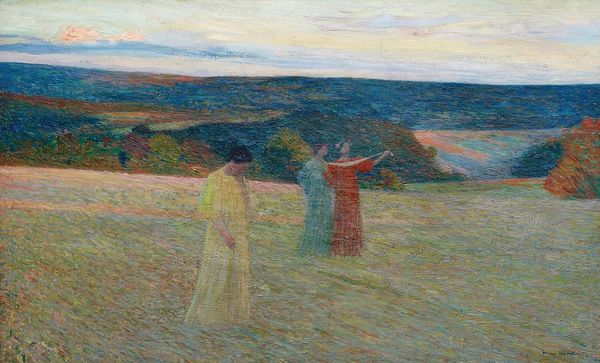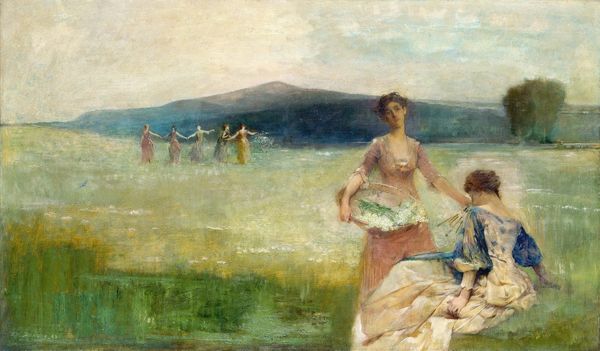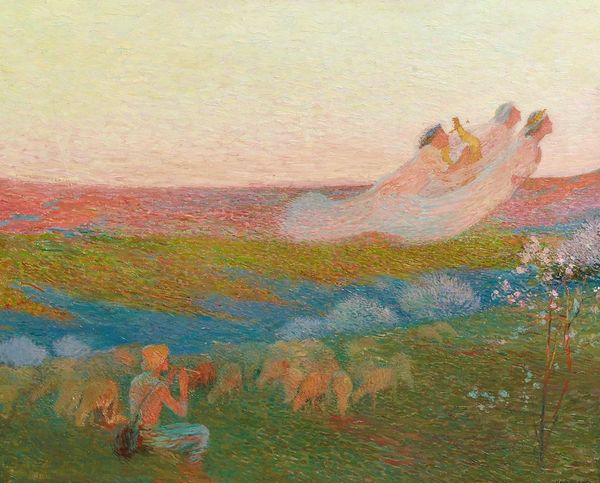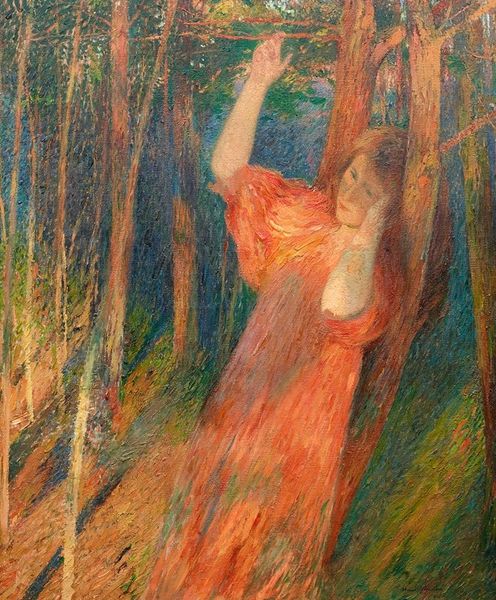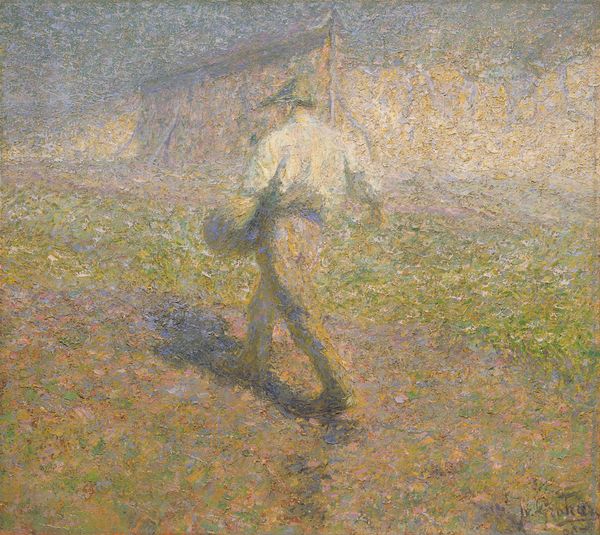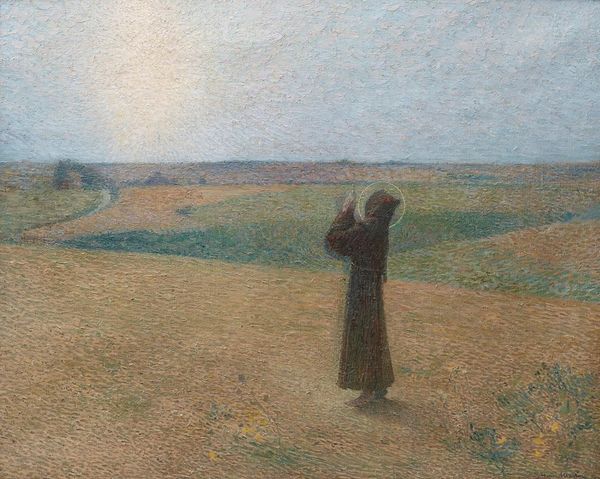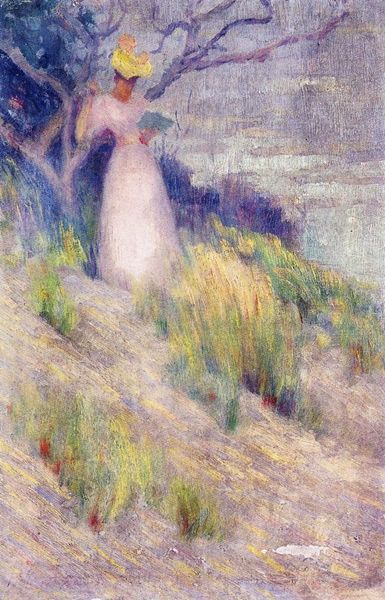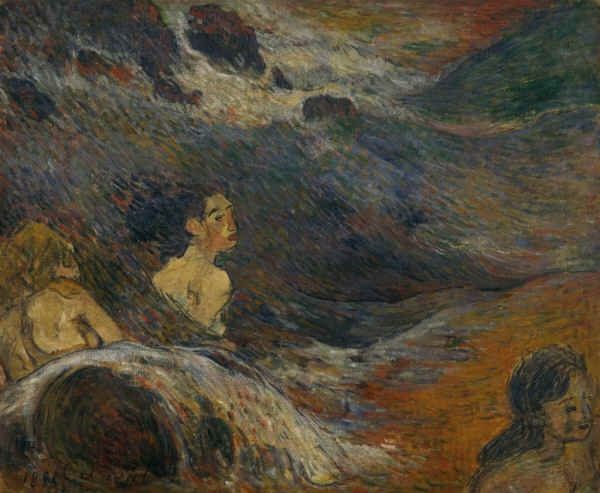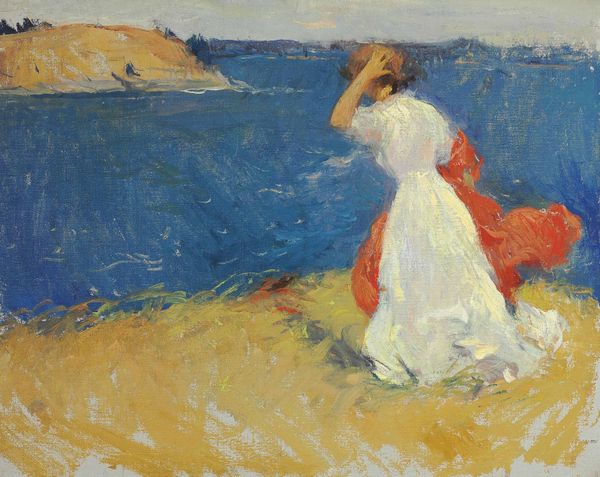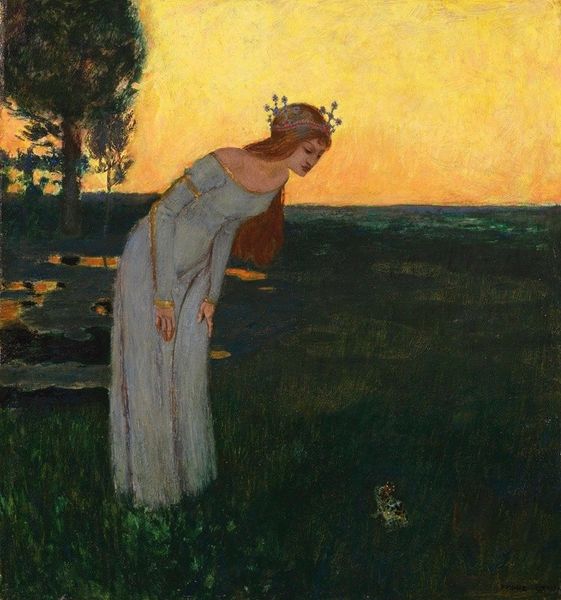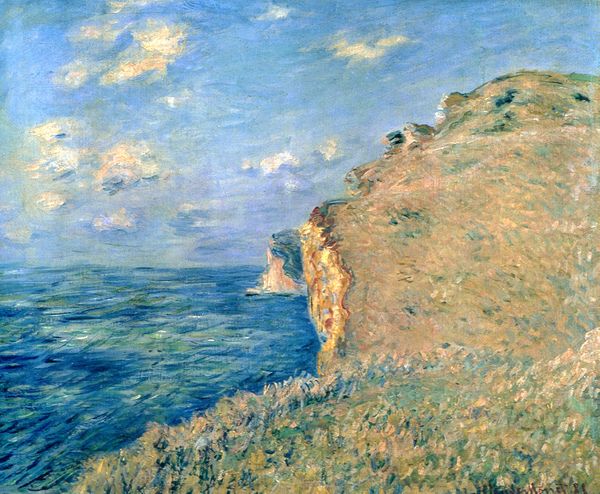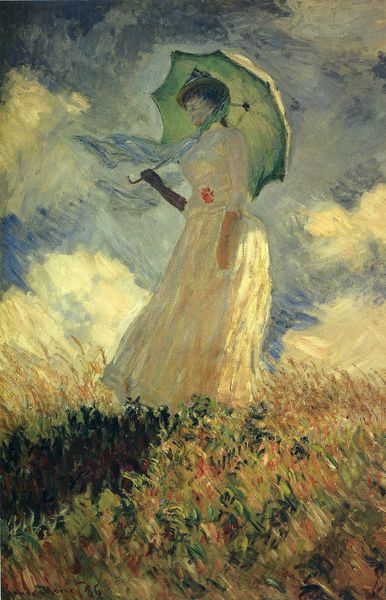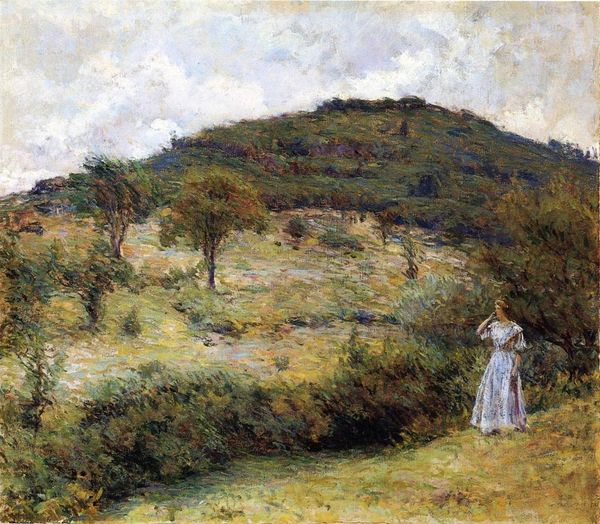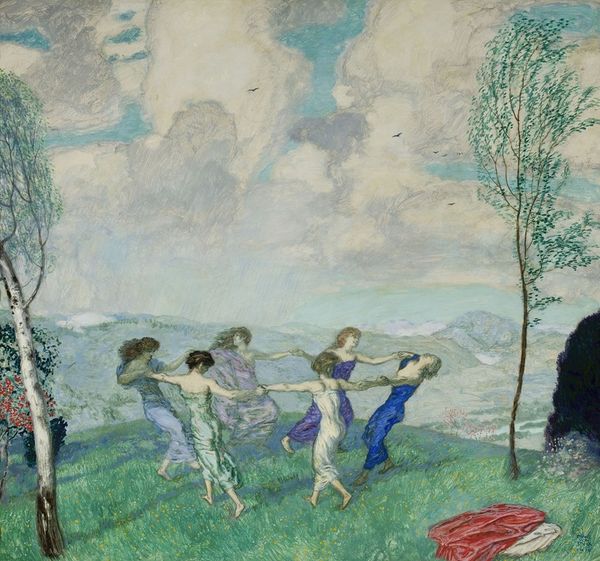
painting, plein-air, oil-paint
#
portrait
#
painting
#
plein-air
#
oil-paint
#
landscape
#
figuration
#
oil painting
#
roman-mythology
#
mythology
#
symbolism
Copyright: Public domain
Curator: Let's consider Henri Martin's "The Song of Orpheus," an oil painting that presents a very interesting landscape and mythological subject. Editor: Yes! Looking at it, there's a dreamlike quality, almost like a hazy memory. How do you interpret this work, considering the story of Orpheus? Curator: The myth of Orpheus has resonated across centuries due to the potency of love, loss, and art's transformative power. Martin's approach situates Orpheus within a socio-political context where the role of the artist is to confront power. What do you think of when you look at Orpheus? Editor: I suppose I see the artist as a figure of resistance or perhaps even a conduit to change, particularly when viewed through a feminist lens—resisting societal norms, even death itself, through their craft. Curator: Precisely. This defiance against power also mirrors a broader struggle against marginalization. How might we interpret Orpheus’ lyre and song in a patriarchal context? Editor: It seems like his lyre becomes an instrument that reclaims narrative, right? An active stance against silencing. His voice opposes the male-dominated voices that define acceptable narratives and art, like a disruption. Curator: Absolutely. By embodying vulnerability and emotion, Orpheus destabilizes the rigid framework and the norms within those established power structures. I wonder about Martin himself - did he believe artists can contribute in this way? Editor: Considering how the myth of Orpheus allows for so much, maybe Martin uses the myth of Orpheus to challenge the societal constraints placed upon artists themselves? Curator: Exactly. "The Song of Orpheus" becomes not just a retelling of myth, but a critical commentary of the artist’s role in navigating societal confines. Editor: This reframing makes me look at mythological artworks from another perspective entirely!
Comments
No comments
Be the first to comment and join the conversation on the ultimate creative platform.
